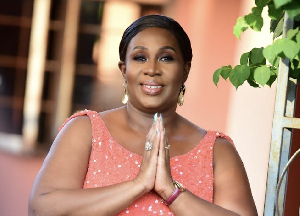Stock exchanges in North and Sub-Saharan Africa had a terrible 2000, with only a handful seeing positive returns in dollar terms. Weak local currencies and disinvestments by major institutional investors were mainly responsible. These trends and lingering political troubles do not bode well for 2001.
Stocks in Africa have never been for the faint-hearted. Extremely high levels of political and currency risk have kept most foreign investors away. Yet in the 1990s new stock markets continued to pop up across the continent; a total of 18 operate today. These markets had hoped to capitalize on the emerging markets frenzy and also play a crucial role in selling off state-owned companies. Some have even shown exciting returns, but performance has been highly erratic.
2000 was definitely a bad year. Of the 13 largest markets, only three posted positive returns in US dollar terms last year (see table below). The only real star was Tunisia. It rose by 61%, coming off its second good year in a row after returning 59% in 1999. Tunisia's market was helped by a burst of domestic investment, much of it coming from government pensions. Investor confidence has also been aided by continued strong economic growth and a recognizable government commitment to reform. By contrast, the other two North African markets fell, Egypt by 11% and Morocco by 20%.
Nigeria was the only other bright spot, rising 38%. Brokers attribute this performance to the inflow of new foreign investment - a so-called "democracy dividend" after the resumption of civilian rule - and the return of some money held overseas by Nigerian expatriates.
The worst markets in 2000 were Namibia (-53%) and Ghana (-46%). Namibia's tumble was mainly the result of shifts within its own market from domestic companies (captured in the local index) to cross-listed companies, led by pensions seeking relative safety in South African blue chips. More worryingly, Namibia was also hurt by the liquidation of some international funds that had large stakes in Namibian companies.
Ghana's decline was entirely due to currency movements. In fact, the local index rose by 16%, but a collapse of the local currency, the cedi, dragged down US dollar returns. Of course, Ghana wasn't the only market hurt by a weak currency. Zambia saw its 68% rise almost entirely wiped out by the fall of the kwacha, leaving just a 3% return. Similarly, South Africa, the third-worst performer, saw the rand drop by 19% against the US dollar, turning a modest 6% decline on the Johannesburg Stock Exchange into a 25% plummet. And the rand's weakness pulled down regional currencies, especially the Namibian dollar (pegged at parity to the rand) and the Botswana pula (heavily weighted against the rand). Zimbabwe also saw a 25% positive return turn into -16% owing to a series of devaluations.
Bad news out of Africa certainly played a role in this disappointing year. The heady days of the "African renaissance" have been long forgotten. Instead, the dominant images of Africa are war in the Congo, crisis in Zimbabwe, and a coup in Cote d'Ivoire. And this has undoubtedly affected investment. Fortunately, investor memory is notoriously short. But the closure of several Africa-specific funds and the withdrawal by many general emerging markets funds (most sharply felt in Namibia) could be longer lasting. Poor liquidity means that selling and leaving is not easy business, while only mediocre returns have simply not justified the higher risk for many fund managers. An HSBC report noted: "The year was marked by large disinvestments by foreign investors who appeared to have lost patience with the difficult markets, poor economics and appalling politics." Few of these guys will be back anytime soon.
These trends mean that 2001 could also be a tough one. HSBC's Jenni Chamberlain is not wholly pessimistic, pointing to Botswana and Nigeria as the places to watch this year. Botswana is probably Africa's safest and most stable country, while GDP growth remains strong. Botswana's market has also been boosted in recent years by a range of interesting IPOs in the retail and services sectors. Government plans to build an international financial services center could also attract new attention, while possible changes to pension laws might also lead to new inflows. Nigeria - providing that the political scene remains calm - could also benefit from more foreign investment and growing comfort levels from those seeking to enter Africa's largest consumer market.
Chamberlain believes the markets to avoid will be Zimbabwe, Ghana, and Kenya. Zimbabwe's political crisis is far from over, while massive shortages of foreign exchange mean that investors cannot get capital out. Ghana too has a long wait for foreign exchange, but things could get better if new donor funds or higher prices for gold and cocoa ease the shortfall. Kenya - which seemed to be finally getting its house back in order and signed a deal with the IMF after a three year freeze - still faces troubles. A drought last year will cut into domestic demand and corporate earnings. And new legislation capping interest rates will hamper bank stocks, which dominate the Nairobi market.
There is money to be made in Africa stocks. But the political and economic uncertainties mean that there will be plenty of troughs between the peaks. Being selective and well-informed is a pre-requisite. It helps to be fearless.
Business News of Monday, 22 January 2001
Source: By Todd Moss eCountries writer
Harsh year ahead for African markets -Worst Ghana
Opinions











